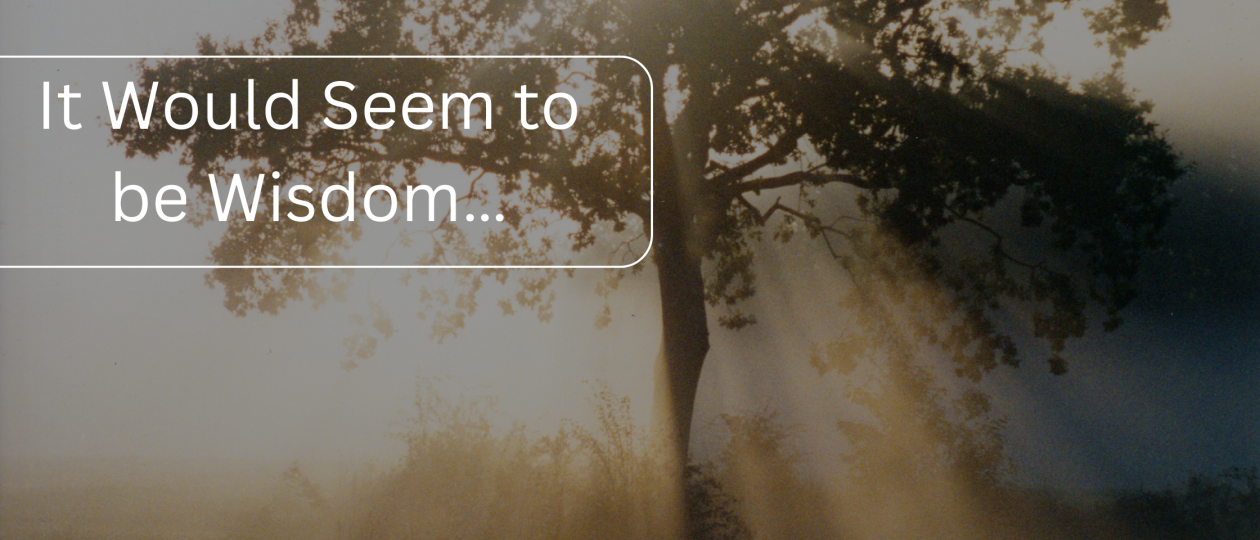It Would Seem to be Wisdom…
Have you ever talked yourself into doing something that just didn’t quite feel right in the moment, only to regret it later? Maybe someone was pressuring you or maybe it just made sense on paper, but what seemed like a perfectly reasonable course turned out all wrong, and you couldn’t help feeling that on some level, you knew better all along.
I’ve seen a rising tide of intellectualism throughout the whole world in my lifetime. On the whole, of course, it’s a very good thing. I’ve gotten to see some amazing scientific and technological advancements, and I think people today are more aware and informed (if not always totally accurately) about each other than ever before.
However, I think in some of us it has also fed a form of elitism, not only towards others but towards certain parts of ourselves. It’s cultivated a sense that only facts and rigor matter, and that an opinion is worth nothing if not backed up by evidence. Now, this is undeniably true in some fields, mathematics being one obvious example. As a child, we might not feel that 5x5=25, but we would quickly have learned otherwise. In red ink. But humankind never has and never will be a totally objective creature, and there’s still a lot our conscious minds don’t know—maybe even can’t know, in some cases. As they say, “a little knowledge is a dangerous thing,” and it’s easy to talk yourself into something foolish by rigidly insisting on following your head without enough to go on.
The title of today’s post comes from The Two Towers, specifically a moment where a man named Faramir proposes what seems to be a very reasonable plan to Frodo, asking that he allow them to lend Gondor’s power to the quest of the ring. Frodo responds, “It would seem like wisdom, but for the warning in my heart.” What Frodo could not consciously know, but his unconscious mind (the heart) had begun to pick up, was that Faramir was desperate to prove himself to his father, and therefore especially vulnerable to the ring’s influence.
Tolkien was a devout catholic, and doubtless influenced by his own spiritual experiences, so you might expect me to make some point here about how science and faith are not really enemies, and the questions of how and why should really be seen as complimentary. And while I do believe all that, we need not go so far as spirituality to see the value of these “gut feelings.”
It has been well-established for many years that the unconscious mind is vastly more powerful than the conscious mind—by a factor of millions. I won’t rehash the many studies which have shown this here, but the bottom line is that we are far smarter than what we are able to put into words, and these nudges from our unconsicous mind may be far from irrational.
One last thought: even in the most highly regulated fields, such as psychology and medicine—subjects on which I can speak with some authority—proof and understanding often lag behind widespread acceptance by years or even decades. The easiest example would probably the Physician’s Desk Reference, the bible of western medicine, which lists the mechanism of action for something like 90% of its medicines as “unknown.” Meaning that we know how it works, but we have no idea why. So the next time your heart gives you a push, don’t be afriad to take it seriously. Of course, you don’t want to start blindly chasing hunches either—so how do you tell the meaningful feelings from the random, intrusive thoughts? More on that next week.
Have a blessed, wonderful day!
Dr. Alex Loyd




Add a Comment